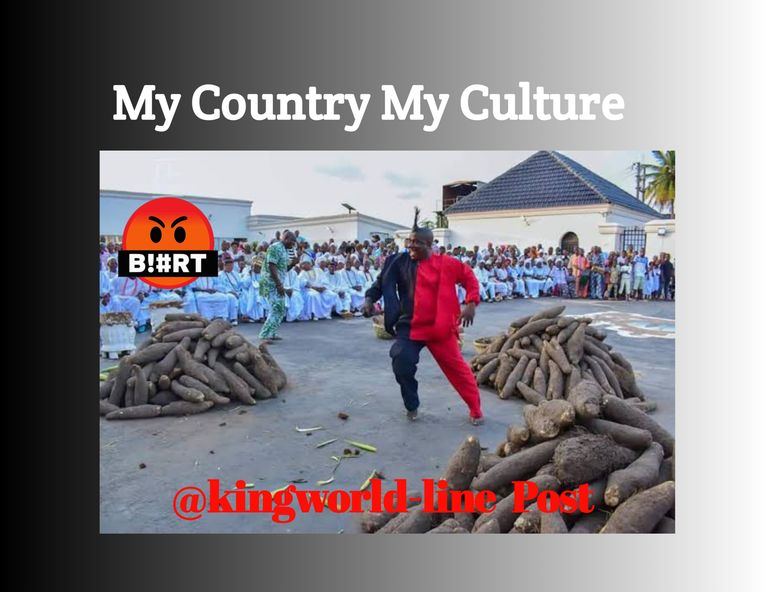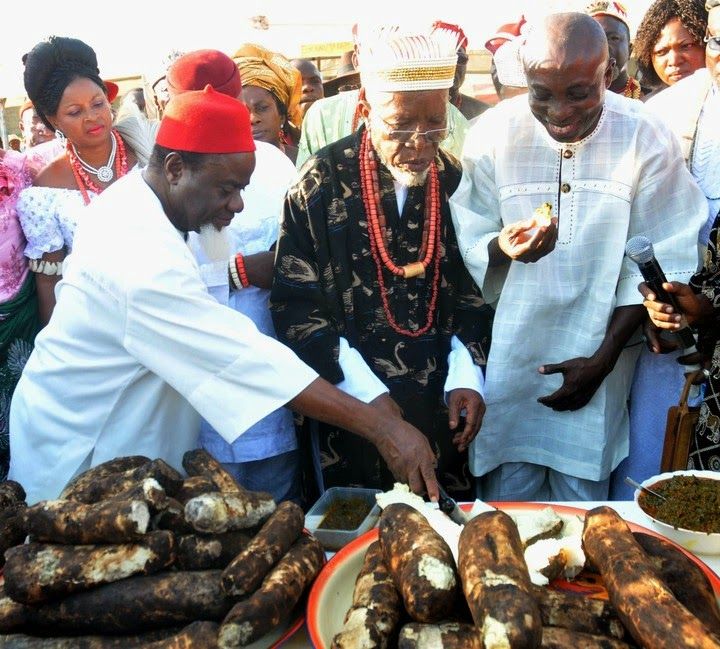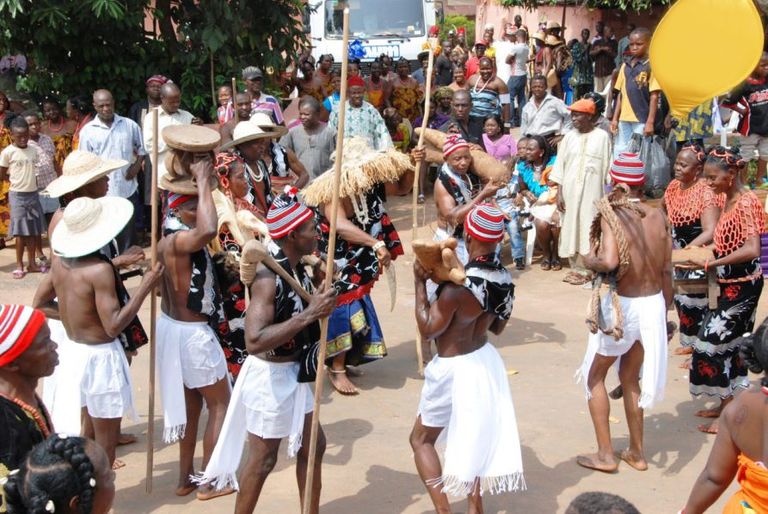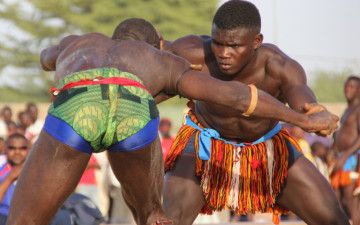
The term "culture" refers to the cumulative deposit of belief, value, attitude, experience, knowledge, hierarchies, religion, notion of time, roles, spatial relationship concept, and lineage possession that is acquired and inherited by our ancestors' group offsprings and individuals during generational transition. As a result, culture is a relative belief, knowledge practiced by a large number of people over a period of time, which is used as a communicative tool.
I will be writing about the origins of the new yam festival, which takes place in the eighth month of the year (August) in the South Eastern region of my country, Nigeria, which is made up of five states: Abia, Anambra, Ebonyi, Enugu, and Imo.
The new yam festival, called "Iri ji ohuru" in my native tongue, is practiced in the Igbo land, which consists of five states in Nigeria. As a result, these five states actually uphold the same cultural rights regarding their language, manner of dress, and cuisine, with yam being one of the respected foods because it is considered to be the king of all foods and was given the month of August to commemorate the abundant production of their first fruit food.

Source
Additionally, this harvest marks the beginning of a new agricultural cycle in Igbo territory. To commemorate this occasion, Igbo people and villages, as well as the kings of the separate communities, are required to celebrate a special ceremony honoring the farm's first harvest.
Yams are among the first seasonal plants to be planted and harvested during the farming season, which lasts between April and August. Because other crops are also harvested and consumed with fanfare, unlike yams, this yam festival is actually a festive celebration that highlights the importance of the Igbo people's traditional use of yam in their social and cultural life in the country's lower-lying Igbo region. In order to welcome the new king of food (yam), it is therefore essential that all of the old yams be either devoured or thrown away before the celebratory day.
The festive celebration is typically a day celebration that lasts the entire day, although in some places it may last for a week or longer. This is because there are minor variations in the way these celebrations are conducted among the communities, states, and communities in South Eastern Nigeria, where the method and styles vary from each community.
The king (Igwe) rituals performance, the eldest man, as well as traditional dancing by men and women, an award ceremony, and a wrestling match are just a few of the events that take place during this festive season. The following activities are taking place at this time.
The formal dancing
One of the activities that provides entertainment for the villagers is dancing. This may take place in the market square or occasionally in the king's palace. To pique the public's interest, a lot of magical traditional dancing skills are displayed while dancing.
Youth dance and adult dance are also featured on this dancing show, both of which feature delightful and intriguing musical accompaniment from the instrument players.
During such gatherings, a lot of young people hook up for marriage, and occasionally the king's son chooses his bride from among the dancers. It's fascinating to watch the dancing ritual during the yam festival.
Additionally, the holiday season includes celebratory events like the fashion parade and masquerade dance.
Wrestling
The purpose of this competition is to find the strongest man in the neighborhood, so it is held during the prestigious yam festival. As a result, before the wrestling, known as "igbamgba," begins, the wrestlers must consume roasted yam, which represents power and strength.
The cycle formed by my village's residents and visitors, along with the local drummers beating the drum with the song of fight and song of victory in the both party sides, is followed by children and adults, both men and women, who are watching which wrestler will prevail.
After the wrestling, the winner is announced and honored as the strongest man that year, which is known as (ikenga) in my home language along with a gift and price. The arena of the gathering is always boisterous owing to the chanting of both parties.
Best Yam Producer
On this special occasion, prizes are given for the best dancer, the best yam producer—known as (Eze Ji) in my native tongue—as well as the best farmer with an abundance of yam, and a prize for the strongest man—also known as (Ikenga) in my native tongue—is also honored.
On the other hand, depending on the day or week each community chooses to commemorate the seasonal rite or ceremonial, each group has its own day set aside for this celebration that always occurs between the first of August and the last day of the month.
Hence, this ritual is carried out by the eldest man in Igbo land or by the king of the communities depending on the law of the land. On the first hour of the day of the yam festival, the yam are being offered as sacrifice to the gods of the land and as well to the ancestors, who are the past glory hero of the land. After that, the yam are now distributed to the villager.
This ritual involves eating the first fruit of the yam to express gratitude to the gods of the land for a successful harvest over a particular season on the yam and other food harvested, while this has shown that they have served as intermediaries between the people of the community and the gods of the land. After the prayer and of giving thanks to the gods the community believes on, they then proceed to eat the first yam with red oil.
Any Igbo man or woman anywhere in the globe welcomes this occasion since it is so significant to the entire Igbo land and a time of celebration following the harvest season that expresses thanks for their abundant crop without death or hunger.
Is it observed today as it was a few decades ago, or are younger people unaware?
According to history, different families are joined together to celebrate this as a sign of love and unity among themselves. As a result of this fact, every man or woman born by man or woman of Igbo land celebrates in remembrance of the gods and in honor of the king lineage.
Although this is still seriously practiced by those in the rural region of South East of Nigeria, it has diminished to some extent due to civilization as a result of the impact that Christianity has had on the introduction of many laws to the Land since the civilization of my country, Nigeria, and is only done observed in the rural ar
The fact is that, as more rural areas experience progress and civilization, this ritual has been aborted more frequently in Igbo country, which has led to a lack of celebration of this holiday among urban dwellers.


Thank you for your review on my post, i appreciate